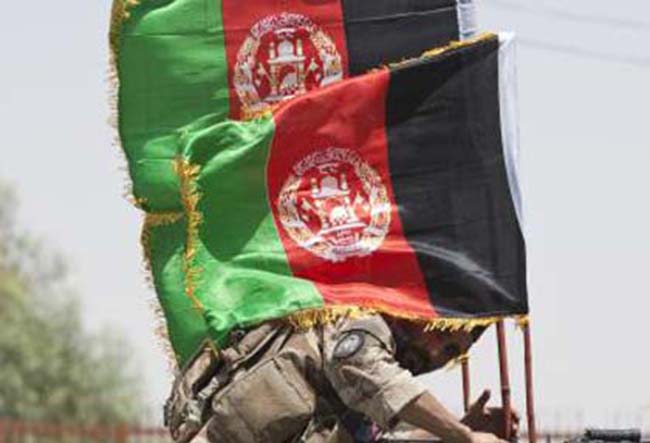Establishing a nascent democratic system in Afghanistan has been a pyrrhic victory for the nation as streams of blood were spilt and the rights and liberty of the public were violated within the past regimes. Throughout the historical ups and downs, Afghans suffered outrageous acts of violence and bloodshed for revealing tendency towards freedom. The kings, with few exceptions, hampered the reformation, liberal or democratic movements and educational activities of the people and sought to keep them in dark.
Despite all despotic practices, it is believed that the seeds of democracy were sowed during the past regimes. Although the succession to the throne was either through inheritance, military coup or religious charisma in Afghanistan, one cannot deny the positive role of some emirs/kings, who cherished faith and patriotic feelings.
Emir Shir Ali Khan, who succeeded his father Emir Doost Muhammad Khan as Afghanistan’s king in 1863, played a constructive role in the country. Coming to the throne at the age of 41, he had to deal with civil unrest and the conflicts between the feudal and the working class on one hand and with the British Empire – which had India under its colony and posed threat to his territory – on the other hand. After all, the tribal elders (Khans) also spearheaded sporadic attacks against the central power and there was a serious competition for gaining the throne among the multi-dynastic nation. Shir Ali’s brothers, who served as provincial governors of large cities, also sought the opportunity to gain the power.
Syed Jamaluddin Afghan, who was born in Kunar in 1838, joined his regime to lead the reformation. However, the political tensions and civil unrests left no room for his thoughts and plans. He offered his reforming program to Shir Ali, who promised to implement it, and left the country based on the king’s demand. Shir Ali engaged in reformation for a decade and developed the country culturally and economically. Two schools were established and the first popular magazine “Shams-al-Nahar” was initiated, military bases were founded and foreign trainers and teachers were employed for military trainings. He also alleviated the farmers’ financial pressures through agricultural developments.
Shir Ali formed a cabinet in 1874 to have his ministers’ suggestions in political issues. In addition, he pioneered conducting Loya Jirga (National Grand Assembly) in 1865 which was attended by 2000 representatives and tribal leaders to decide about his policy towards his brothers, Sardar Amin Khan and Muhammad Sharif Khan, who were opposed to his kingdom. He strengthened the military and established weapon-making factories in the country.
Emir had a peaceful foreign policy and sought to maintain Afghanistan’s territorial integrity rather than extending the realm of his kingdom. However, the British Empire continued its “forward policy” through occupying Herat and Kandahar which triggered a bloody war between Afghan nation and British forces (though they were defeated by Afghans years back and withdrew from Kabul on January 1842). Unlike his father, Emir Shir Ali khan denied to sign any contracts with the British forces and be subject to their demands. Being overactive, the foreign intelligence spilled its venom in Afghanistan’s internal issues and acted upon the “divide and rule” policy.
In spite of all the challenges, history witnessed glorious victories of Afghan nation in bloody battles against foreign colonization. Despite being deprived of very basic weapons versus the world’s super powers, Afghan people fought with high morale and strong faith to protect their rights and dignity and safeguard the territorial integrity. Although they sustained great loss and made countless sacrifices, they never hesitated in defending their national values and cultural norms – these all nurtured the spirit of freedom and democracy in the country.
The ebb and flow of democracy during different regimes is an undeniable fact. For instance, as Shir Ali sowed the seeds of democracy, his son and successor Emir Muhammad Yaqob Khan repressed democratic movements and led an inglorious reign. To the unmitigated chagrin of the public, he blemished the holy war of Afghan nation and ruined the outcome of years of sacrifices.
Democracy was supported by one emir and weakened by the next. If we compare the regimes of Abdul Rahman Khan and Amanullah Khan, the first Emir reigned the country with full dictatorship and spilt the blood of large number of people in one way or another. He also discriminated the individuals on the grounds of their race, color and creed whereas Amanullah Khan upheld democratic movements, put an end to slavery and liberated the country from the chains of colonization and cruelty. Amanullah strengthened national unity and protected nation’s rights and liberty in the best way. He advocated liberal mindsets and educational and cultural activities and dreamed of establishing a democratic Afghanistan.
Since democratic administration is a widely accepted type of government which ensures citizens’ rights and freedoms and nurtures peace and stability, the world will have to institutionalize it. Moreover, democracy, which upholds tolerance and liberal mindsets, is believed to strengthen not only national stability but also international peace. Liberalism is the intellectual basis of democracy and it puts an especial emphasis on individuals’ liberty. Therefore, the state must support the inchoate democracy in the country through combating terrorism and uprooting barriers or else the national sacrifices made in this regard, throughout the history, will be faded away.
Home » Opinion » The Outcome of Historical Sacrifices
The Outcome of Historical Sacrifices
| Hujjatullah Zia

